While the baby blues, which is often associated with postpartum hormonal shifts, is rather common after birth, postpartum depression affects up to 20% of new mothers, the WHO reports. How to explain such phenomenon? What are the signs to watch for? How to cope? We asked Manon Luigi Monty, a Clinical Psychologist.
After experiencing hormonal upheaval and symbiosis with baby for nine months, it is completely normal to feel somewhat confused and even depressed. With fatigue and hormonal drop not helping, we even talk about a feeling of emptiness, which can last a few days or weeks: this is the famously called ‘baby blues’. Irritability, anxiety, vulnerability, sudden mood change, sadness… The symptoms are multiple, but clear up rather quickly.
‘Postpartum depression, however, appears as a real depressive syndrome. There are more symptoms and these are much more severe,’ explains Manon. Frequent unexplained tears, irritability, suicidal thoughts, severe anxiety, exhaustion, apathy, self-depreciation and incapacity to enter the parent role… Unlike the baby blues, such symptoms persist in time and require an actual treatment. Also keep in mind that postpartum depression does not only affect women! Up to 20% of new fathers are said to be also concerned.
Though it is difficult to determine the causes of postpartum depression with certainty, there are many factors, which can contribute to the outset of the disease. They are physical, hormonal, social, emotional, or psychological factors… ‘The arrival of a first child can cause great interior upheavals: an important identity change, grieving processes – of the former lifestyle, of the ideal child, of an idealized form of maternity,’ Manon continues. After a difficult delivery, some mothers may even suffer from post-traumatic stress.
Can one be prepared to it? According to the psychologist, a pre-childbirth follow-up would be necessary for such mothers, who have been feeling insecure since the beginning of their pregnancy, or have already suffered from depression or anxiety before or during pregnancy. Other risk factors, such as breastfeeding difficulty, low self-esteem, marital problems or previous trauma, should also be taken into account. ‘If the postpartum depression is not treated in a timely manner, it may cause father and mother alike, and also the child to suffer, as attachment disorders may develop between child and parent and impair the child’s cognitive, emotional and social development,’ says Manon.
As of the onset of symptoms, a whole process is to be put in place. Psychological counselling will help patients work on their distress and self-image in the aftermath of such an upsetting experience, and wherever appropriate, drug therapy may be used where there is a suicide risk. ‘In absence of psychotherapeutic support, the symptoms caused by the traumas will become incapacitating on a daily basis,’ the psychologist adds. One should not turn in on oneself, but talk about it openly.
If someone seems to present such symptoms in your circle, the first thing to do is to offer support, love, and listen. ‘Such an event must be interpreted as a reminder for the mother to take care of herself, both physically and psychologically. Suffering from postpartum depression does not make you a bad parent. Everyone may need some help sometimes,’ concludes Manon.
If you think you are suffering from postpartum depression, we have a whole team of professionals ready to help you get over it. Do not hesitate to contact them on 401 95 00 or to make an appointment with Manon Luigi Monty on 5 258 44 66.
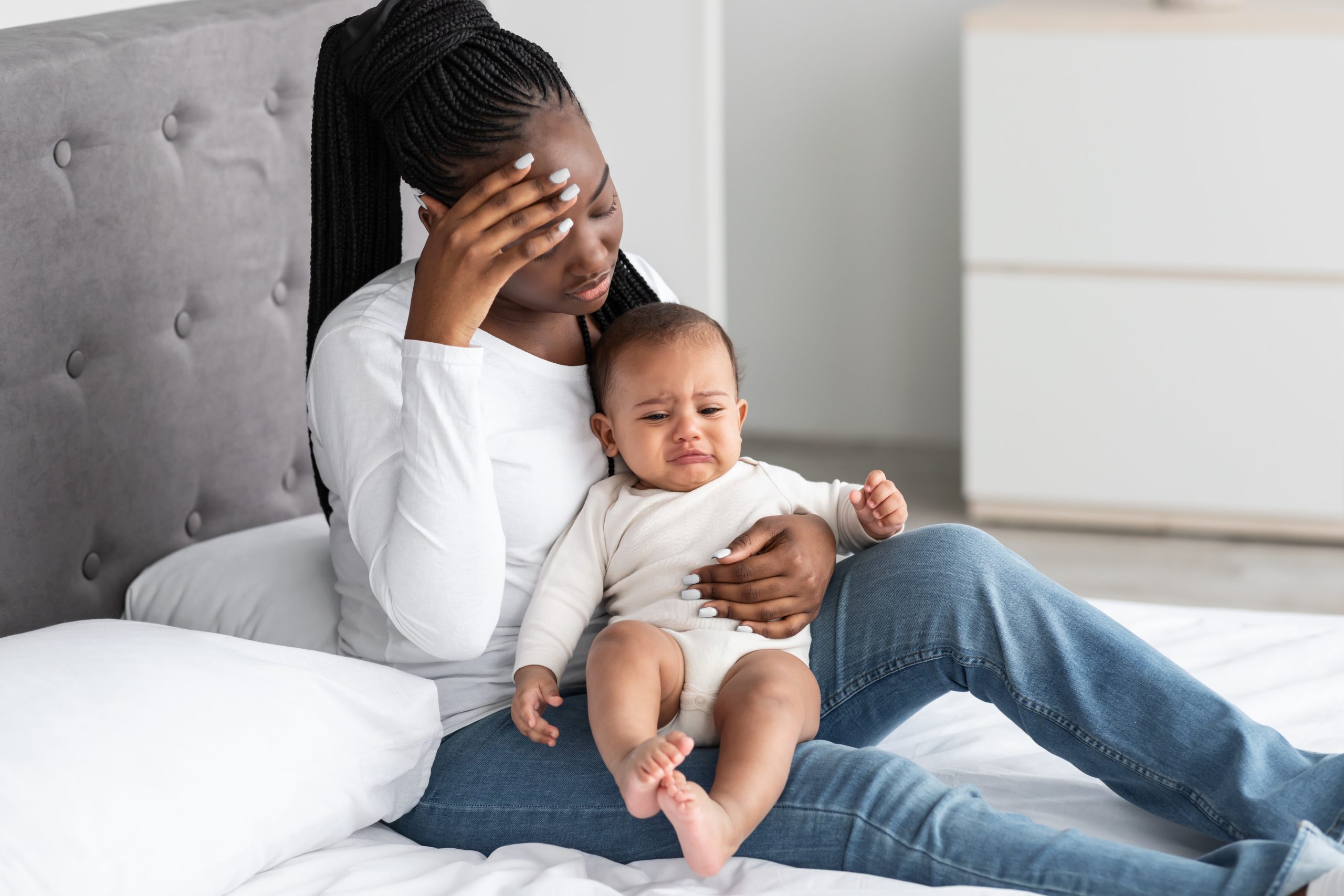
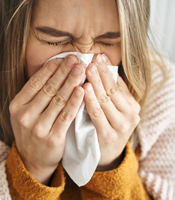
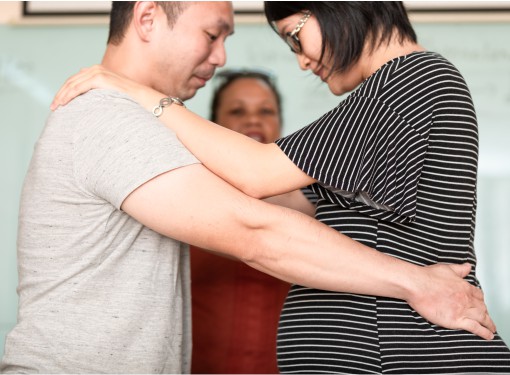



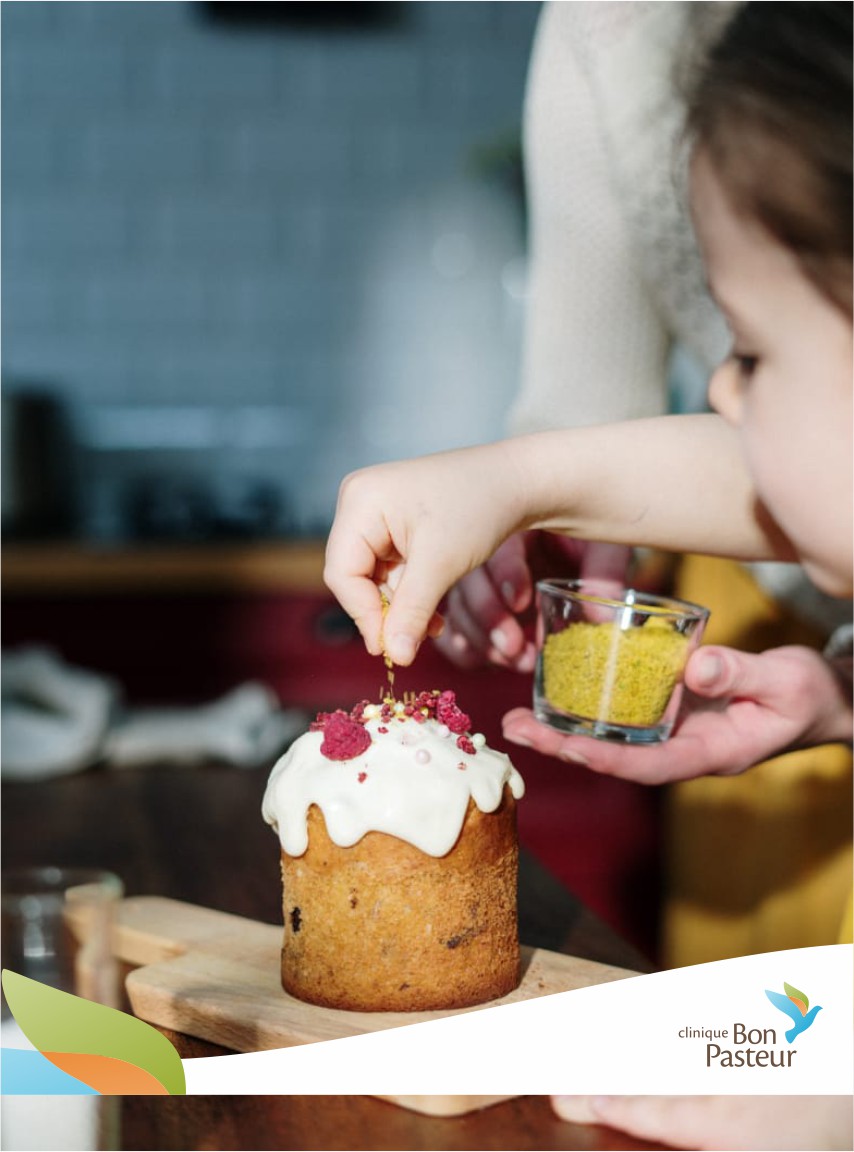

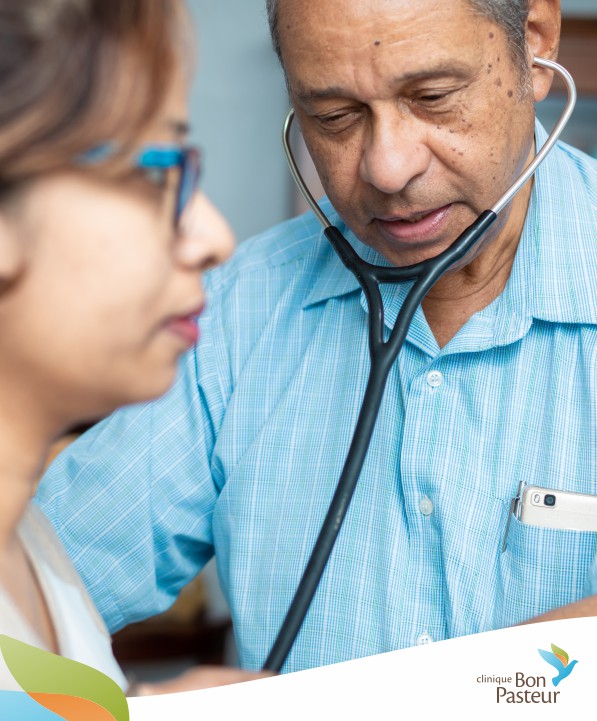

Convenient, flexible and user-friendly are the key-words that best describe Clinique Bon Pasteur’s Pharmacy. Located inside the clinic, the pharmacy has recently been renovated and extended and is opened to all. It is an extremely convenient pharmacy option, not only for those consulting a health professional at the clinic, but for anyone in need of medicines, even in the evening or during the weekend.
So many of us have found ourselves, one day or the other, in a hurry, and having a hard time finding that medicine that we urgently need, struggling to find a parking, or looking for a pharmacy opened during the evening, with a staff capable of advising us if need be.
Clinique Bon Pasteur can address all of these, and even more! With a staff made up of 2 pharmacists, and 8 pharmacy dispensers, there is always someone available to meet customers’ needs in a professional way. The clinic is equipped with 2 free parking area for its customers, making the pharmacy very easily accessible.
And what about the medicines’ prices? Some might think that prices are higher because the pharmacy is attached to a private clinic. “Not at all!” Noorina Goolamnobee, the pharmacist in charge, explains with a smile: “The prices are set by the Ministry of Commerce, and therefore our prices are aligned with those of other pharmacies of the country”.
Moreover, as from now on, no more stops in several pharmacies to find the medicines prescribed by your doctor. At Bon Pasteur pharmacy, you will be able to find most of the medicines prescribed by the doctors who consult at Clinique Bon Pasteur.
Being opened from 8 am to 9pm every day, including weekends, and public holidays, the pharmacy accepts cash or credit card payments. Thus, with this renovated and more spacious retail pharmacy, an even more inclusive health service is brought to you by Clinique Bon Pasteur!